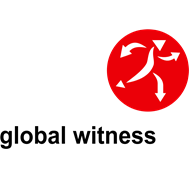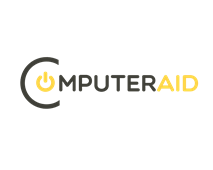
Introduction
In project management, lessons learned are essential insights gained from experience. These documented experiences guide project managers towards success in future endeavours. The systematic capture and utilisation of lessons learned is vital for organisational growth and project excellence.
By effectively applying past experiences, project teams can prevent recurring mistakes, replicate successful strategies, improve decision-making processes, and enhance overall project performance.
This article examines the comprehensive process of managing lessons learned, from identification to implementation. We’ll explore the five-step lessons learned process, methods for capturing and documenting insights, approaches for analysing and storing valuable information, techniques for applying lessons in future projects, and best practices alongside common challenges.
After reading, you’ll possess a robust framework for implementing an effective lessons learned system in your organisation, ensuring continuous improvement and project success.
The lessons learned process
The lessons learned process is a structured approach to capturing, analysing, and applying valuable insights from project experiences. By following this systematic method, project teams can significantly improve their performance and outcomes.
Five steps of the lessons learned process
- Identify: This initial step involves recognising valuable experiences and insights throughout the project lifecycle. Team members should be encouraged to note both successes and challenges as they occur.
- Document: Once identified, lessons must be recorded in a clear, concise manner. This often involves using standardised templates or forms to ensure consistency and completeness of information.
- Analyse: The documented lessons are then examined to understand root causes, patterns, and potential implications for future projects. This step may involve group meetings or individual reflection.
- Store: Analysed lessons should be stored in a centralised, easily accessible repository. This could be a database, shared drive, or specialised knowledge management system.
- Retrieve: The final step involves accessing and applying relevant lessons to current or future projects. This step is crucial for realising the full value of the lessons learned process.
When to capture lessons learned
Timing is crucial in the lessons learned process. There are three key moments when capturing lessons is particularly effective:
- End of project: A comprehensive review at project completion allows for a holistic evaluation of the entire project lifecycle. This provides valuable insights into overall project performance and outcomes.
- End of each phase: Conducting reviews at the conclusion of each project phase enables teams to capture fresh insights while details are still clear in everyone’s minds.
- Real-time learning: Encouraging ongoing capture of lessons as they occur ensures that no valuable insights are lost due to time lapses or fading memories.
By implementing this structured approach and capturing lessons at these key moments, project teams can create a robust knowledge base. This resource becomes invaluable for improving project management practices, enhancing decision-making, and ultimately increasing the likelihood of project success.
Remember, the lessons learned process is not a one-time event but a continuous cycle of improvement. Regular practice and refinement of this process can lead to significant advancements in project management capabilities and organisational performance.
Identifying lessons learned
Effective identification of lessons learned is crucial for maximising the value of project experiences. This process involves careful preparation and skilled facilitation of lessons learned sessions.
Preparing for lessons learned sessions
Project surveys
Prior to the session, distribute project surveys to team members. These surveys should encourage reflection on project experiences, gather initial thoughts on successes and challenges, and provide a foundation for more in-depth conversations.
Categorising lessons learned
Organise lessons into categories to facilitate analysis and retrieval. Common categories include:
- Project management processes
- Technical challenges
- Communication
- Resource allocation
- Risk management.
Conducting lessons learned sessions
Facilitation techniques
Effective facilitation is key to productive sessions. Consider these techniques:
- Use a neutral facilitator to ensure objectivity
- Encourage open and honest communication
- Employ brainstorming techniques to generate ideas
- Use visual aids like mind maps or whiteboards.
Key questions to ask
Guide the deliberation with these essential questions:
- What went well in the project?
- What challenges did we face?
- How did we overcome these challenges?
- What would we do differently next time?
- What unexpected events occurred, and how did we handle them?
By focusing on these questions, you can elicit valuable insights from team members. Remember to create an environment where all participants feel comfortable sharing their experiences and observations.
Thorough preparation and skilled facilitation of lessons learned sessions will yield a wealth of valuable insights. These insights, when properly documented and analysed, can significantly enhance future project performance and organisational knowledge.
Documenting lessons learned
Proper documentation of lessons learned is essential for preserving and sharing valuable project insights. This section explores effective methods for creating comprehensive reports and utilising tools to streamline the documentation process.
Creating effective lessons learned reports
Detailed reports
Detailed reports provide a comprehensive account of the lessons learned. They should include:
- Project overview and context
- Methodology used for gathering lessons
- Categorised list of lessons learned
- Analysis of root causes
- Recommendations for future projects.
Ensure these reports are clear, concise, and easily searchable for future reference.
Executive summaries
Executive summaries offer a high-level overview of key lessons. They should highlight the most significant findings, present actionable recommendations, and be concise and tailored to senior management’s needs.
Tools for documenting lessons learned
Lessons learned input forms
Input forms standardise the collection of lessons learned. An effective form should capture:
- Project name and date
- Lesson category
- Description of the situation
- Impact on the project
- Recommendations for future projects.
Templates and checklists
Templates and checklists ensure consistency in documentation across projects. Consider including a template for the detailed report structure, checklist of key areas to cover in lessons learned sessions, and standardised format for presenting recommendations.
By employing these tools and techniques, you can create a robust system for documenting lessons learned. This approach ensures that valuable insights are captured effectively and can be easily accessed and applied in future projects.
Remember, the goal is to create documentation that is both comprehensive and user-friendly, facilitating knowledge transfer across your organisation.
Analysing lessons learned
The analysis phase transforms raw lessons learned data into valuable insights. This process involves examining the collected information, identifying patterns, and generating actionable recommendations for future projects.
Techniques for analysing lessons learned data
To extract maximum value from your lessons learned, consider these analytical techniques:
- Root cause analysis: Identify the underlying causes of both successes and failures.
- SWOT analysis: Evaluate Strengths, Weaknesses, Opportunities, and Threats revealed by the lessons.
- Pareto analysis: Focus on the 20% of factors that contribute to 80% of the results.
- Affinity diagramming: Group similar lessons to identify common themes.
Identifying trends and patterns
Look for recurring themes across multiple projects or phases. This may involve comparing lessons from similar project types, examining lessons across different time periods, and analysing lessons by project role or department.
Use data visualisation tools like charts or heat maps to make patterns more apparent.
Generating actionable insights
Transform your analysis into concrete recommendations:
- Prioritise insights based on their potential impact and feasibility of implementation.
- Develop specific, measurable actions to address identified issues or replicate successes.
- Link insights to existing processes or methodologies within your organisation.
- Create a feedback loop to track the effectiveness of implemented recommendations.
Remember, the goal of analysis is not just to understand what happened, but to guide future decision-making. By applying these analytical techniques, you can transform lessons learned from historical records into valuable tools for project improvement. This systematic approach to analysis ensures that your organisation continually evolves its project management practices based on real-world experiences.
Storing and retrieving lessons learned
Effective storage and retrieval of lessons learned are crucial for maximising their value across projects and teams. This section explores strategies for creating an efficient system to manage this valuable knowledge.
Creating a centralised lessons learned repository
A centralised repository serves as a single source of truth for all lessons learned. When setting up your repository, choose a platform that integrates seamlessly with existing project management tools. Implement a clear structure and categorisation system to organise the lessons effectively. Ensure the repository is scalable to accommodate future growth, allowing for the addition of new projects and insights over time.
Implementing effective search and retrieval systems
To make lessons easily discoverable, incorporate a robust search functionality with filters for project type, date, and category. Implement a tagging system for key themes and topics, enabling users to quickly find relevant information. Consider adding an option for users to rate the usefulness of lessons, helping to surface the most valuable insights. These features collectively enhance the accessibility and utility of the stored knowledge.
Ensuring accessibility and usability of stored lessons
To promote widespread use of the lessons learned repository, provide user-friendly interfaces for both desktop and mobile devices. Implement role-based access controls to protect sensitive information while still allowing appropriate access. Regularly update and curate the content to maintain its relevance and value. Offer training sessions on how to effectively use the repository, ensuring that all team members can leverage this resource to its full potential.
By creating a well-structured, easily searchable, and accessible repository, you enable your organisation to leverage past experiences effectively. This approach transforms lessons learned from static records into dynamic resources that inform decision-making and improve project outcomes across your organisation.
Leveraging lessons learned for future projects
The true value of lessons learned lies in their application to future projects. This section explores strategies for effectively utilising these insights to enhance project outcomes and drive organisational improvement.
Incorporating lessons learned into project planning
To integrate lessons learned into your project planning process, begin by reviewing relevant lessons during the initiation phase. Include a lessons learned review as a standard step in project kick-off meetings, assigning team members to research and present applicable lessons. This approach ensures that past experiences directly inform current project strategies.
Additionally, update project templates and checklists based on past learnings to embed these insights into your standard practices.
Sharing lessons learned across the organisation
To maximise the impact of lessons learned, establish a knowledge-sharing culture that values learning from experiences. Create regular forums for exchanging and disseminating key lessons and incorporate them into training programmes and onboarding processes.
This approach helps spread valuable insights throughout the organisation. Recognise and reward individuals who effectively apply lessons learned, reinforcing the importance of this practice.
Continuous improvement through lessons learned
Foster ongoing growth and development by implementing a feedback loop to track the effectiveness of applied lessons. Regularly review and update your lessons learned repository to ensure its continued relevance. Encourage teams to challenge existing practices based on new insights, promoting innovation and adaptation.
Use lessons learned data to inform strategic decision-making at the organisational level, ensuring that your company’s direction is guided by real-world experiences and outcomes.
By actively leveraging lessons learned, you transform past experiences into valuable assets for future success. This approach not only improves project outcomes but also cultivates a culture of continuous learning and improvement within your organisation.
Remember, the goal is not just to collect lessons, but to apply them systematically to drive tangible improvements in project management practices and outcomes.
Challenges and best practices
Implementing an effective lessons learned process can be challenging, but understanding common obstacles and best practices can help organisations overcome these hurdles and maximise the value of their insights.
Common obstacles in implementing lessons learned processes
Many organisations struggle with time constraints, viewing lessons learned as a low-priority task. Cultural resistance to admitting mistakes or sharing failures can also hinder the process. Additionally, inconsistent documentation and poor knowledge management systems often result in lost or inaccessible lessons.
Strategies for overcoming challenges
To address these obstacles, organisations should integrate lessons learned activities into project timelines and allocate resources accordingly. Fostering a blame-free culture that values learning, and improvement can encourage open sharing of experiences. Implementing standardised documentation processes and user-friendly knowledge management systems can also enhance the capture and retrieval of lessons.
Best practices for maximising the value of lessons learned
To optimise your lessons learned process, make it a continuous activity throughout the project lifecycle, rather than a one-time event. Involve all stakeholders in the process, not just the project team, to gather diverse perspectives. Use a variety of methods to collect lessons, such as surveys, interviews, and workshops, to capture a comprehensive range of insights. Ensure that documented lessons are specific, actionable, and relevant to future projects to maximise their utility. Regularly review and update your lessons learned repository to maintain its relevance and value over time.
By addressing challenges head-on and adopting these best practices, organisations can create a robust lessons learned process that drives continuous improvement and project success.
Measuring the impact of lessons learned
To ensure the effectiveness of your lessons learned process, it’s crucial to measure its impact on project performance and organisational growth. This section explores key performance indicators and evaluation methods to assess the value of your lessons learned initiatives.
Key performance indicators for lessons learned processes
Consider tracking these KPIs to gauge the success of your lessons learned efforts:
- Number of lessons captured per project
- Percentage of lessons applied to subsequent projects
- Reduction in recurring issues across projects
- Improvement in project success rates
- Time saved through application of lessons learned.
Methods for evaluating the effectiveness of lessons learned initiatives
To assess the impact of your lessons learned programme, employ these evaluation techniques:
- Conduct surveys to measure team members’ perceived value of the process
- Compare project outcomes before and after implementing lessons learned initiatives
- Track the frequency of accessed lessons in your repository
- Analyse the correlation between applied lessons and project success metrics
- Perform regular audits to ensure lessons are being consistently captured and utilised.
By systematically measuring the impact of your lessons learned process, you can demonstrate its value to stakeholders and identify areas for improvement. This data-driven approach ensures that your organisation continues to refine and enhance its knowledge management practices.
Conclusion
The implementation of a robust lessons learned process is crucial for organisational growth and project success. By systematically identifying, documenting, analysing, storing, and retrieving valuable insights, organisations can significantly enhance their project management practices.
A culture of continuous learning is essential for maximising the benefits of lessons learned. This culture encourages open communication, values experiential knowledge, and promotes the application of insights across projects and teams.
To truly leverage the power of lessons learned, organisations must commit to integrating these activities into project lifecycles and fostering a blame-free environment that encourages honest reflection. Implementing user-friendly systems for capturing and accessing lessons, along with regularly measuring and evaluating the impact of lessons learned initiatives, are key to sustaining this practice.
By embracing these principles and implementing effective lessons learned processes, organisations can drive continuous improvement, reduce recurring issues, and ultimately achieve greater project success. Start enhancing your lessons learned practices today to secure a more efficient and effective project management future.
FAQs
How often should lessons learned sessions be conducted?
Ideally, conduct sessions at the end of each project phase and upon project completion. For longer projects, consider quarterly sessions to capture insights while they’re fresh.
What’s the difference between lessons learned and project post-mortems?
Lessons learned focus on ongoing improvement throughout the project lifecycle. Post-mortems typically occur at project end and may have a broader scope, including overall project performance evaluation.
How can we encourage team members to actively participate in lessons learned sessions?
Create a blame-free environment, emphasise the value of learning, and demonstrate how insights are applied. Consider using anonymous submission methods for sensitive topics.
What are some effective tools for capturing lessons learned in real-time?
Use project management software with built-in features, dedicated mobile apps, or simple shared documents. The key is accessibility and ease of use for team members.
How can we ensure lessons learned are actually applied to future projects?
Integrate lessons review into project kick-off meetings, update project templates based on learnings, and assign responsibility for implementing specific lessons.
What role does leadership play in promoting a culture of lessons learned?
Leaders should actively participate in sessions, allocate resources for the process, and visibly apply insights in decision-making to demonstrate the value of lessons learned.
How can we make lessons learned sessions more engaging and productive?
Use varied formats like workshops or gamification, focus on specific themes, and ensure sessions result in actionable outcomes to maintain engagement.
What are some common pitfalls to avoid when implementing a lessons learned process?
Avoid treating it as a checkbox exercise, neglecting to follow up on actions, or allowing sessions to become blame games. Ensure the process is consistently applied across all projects.
Infographic









